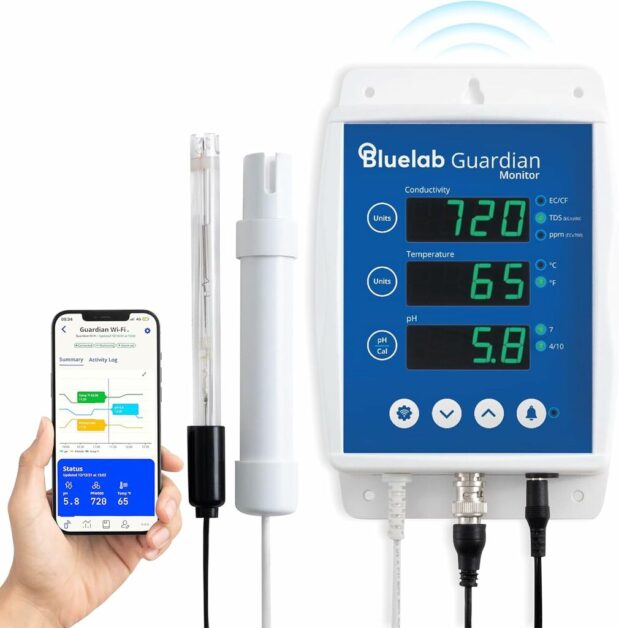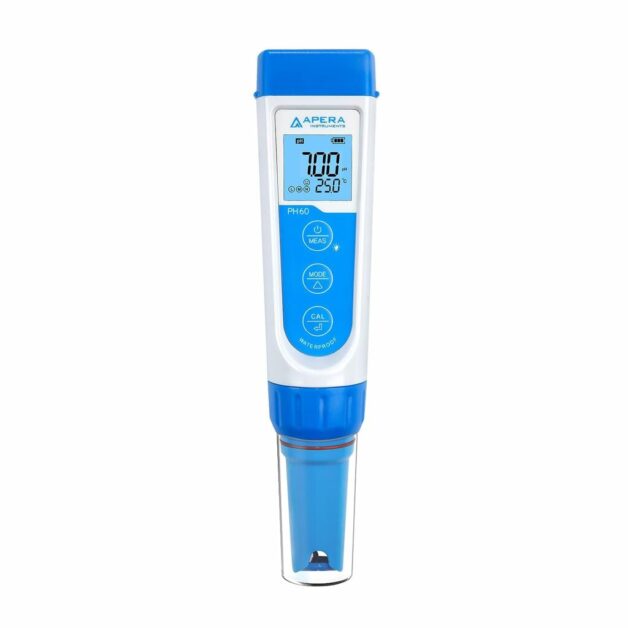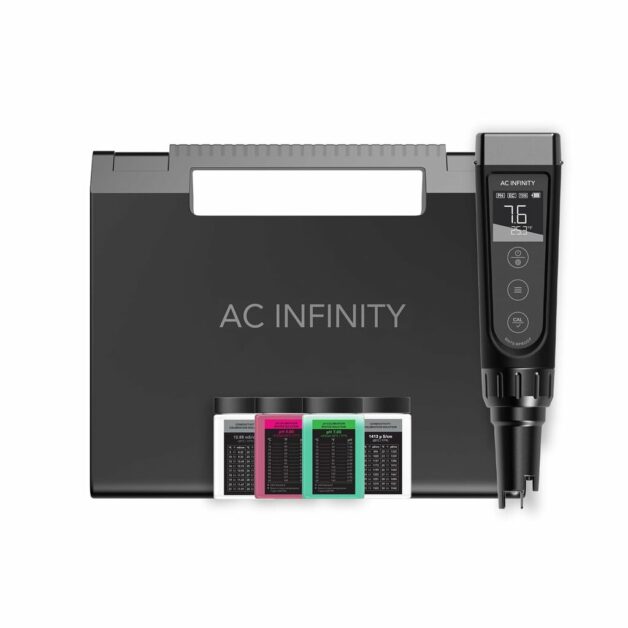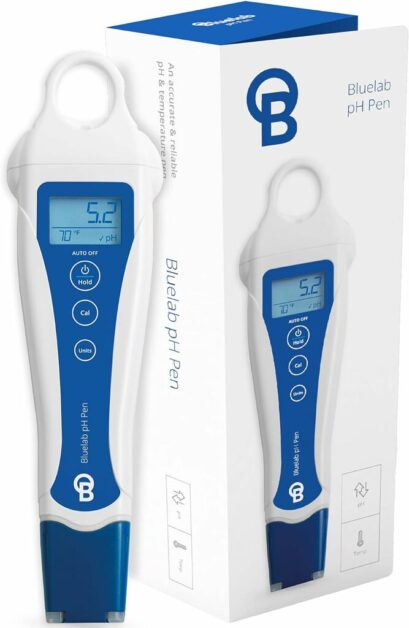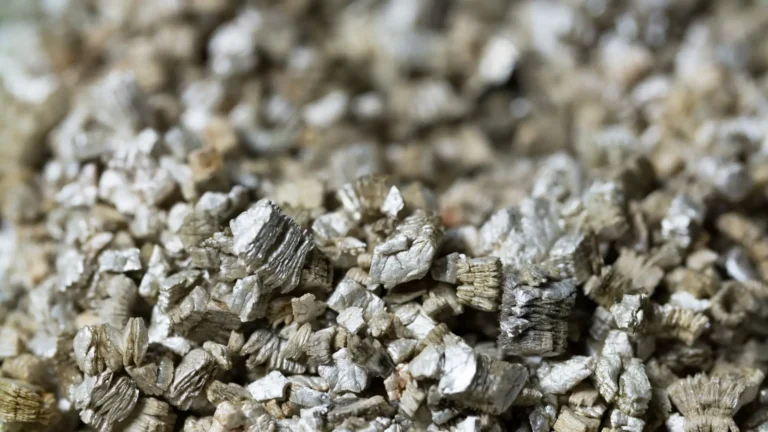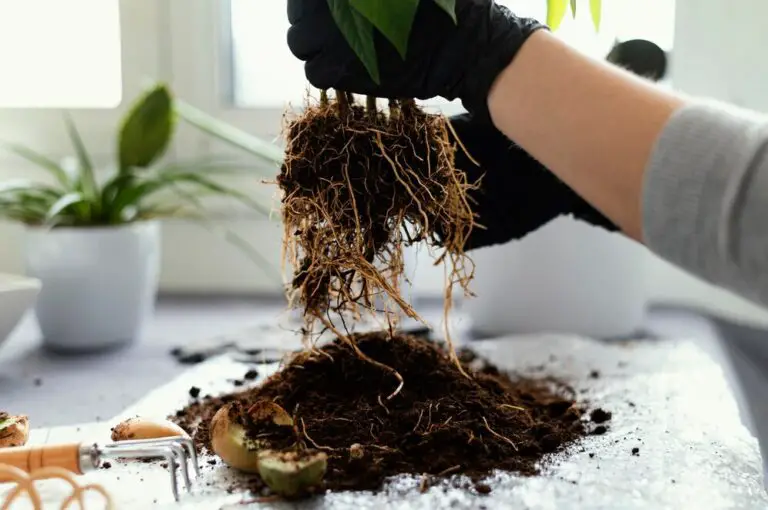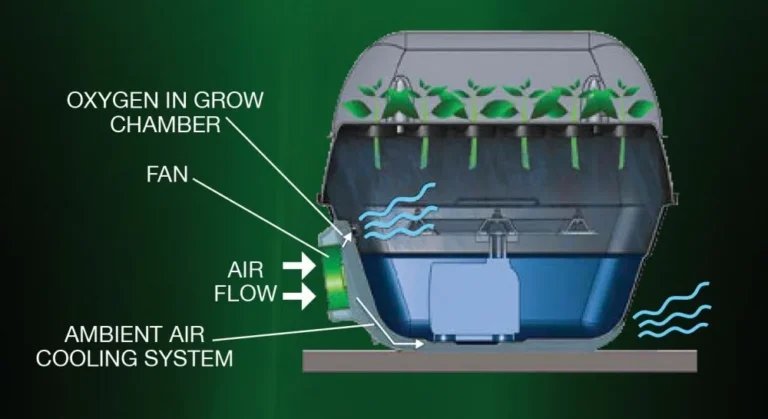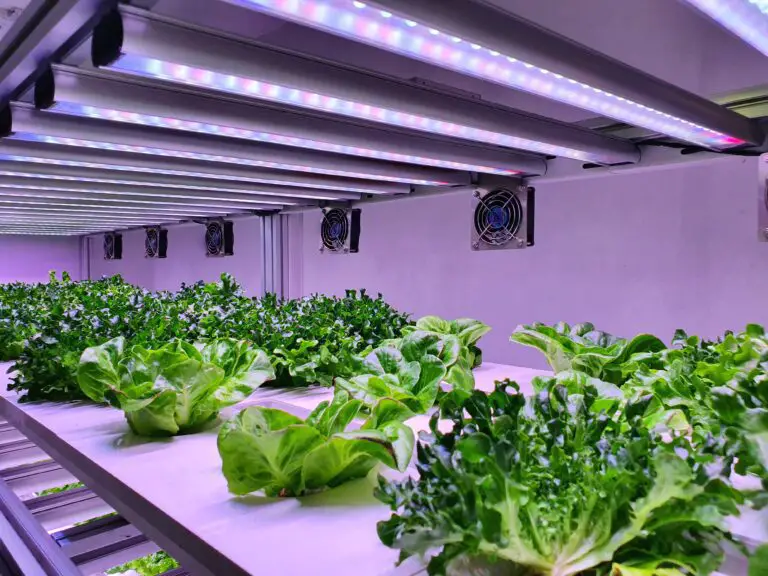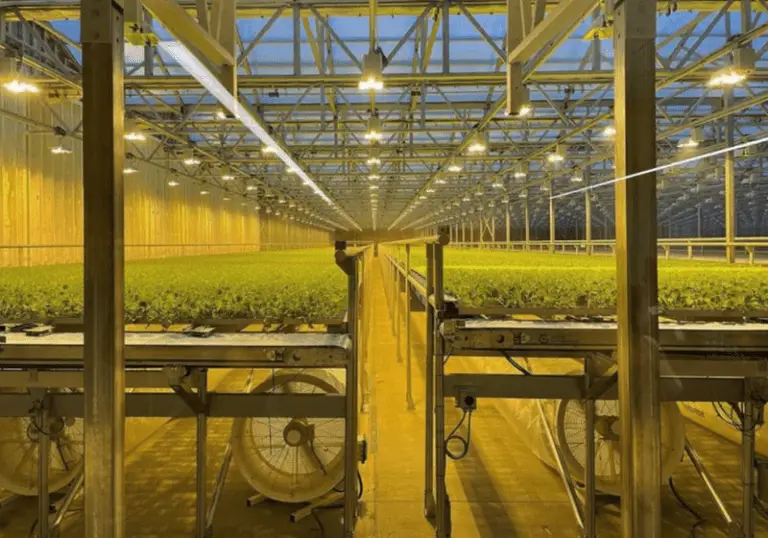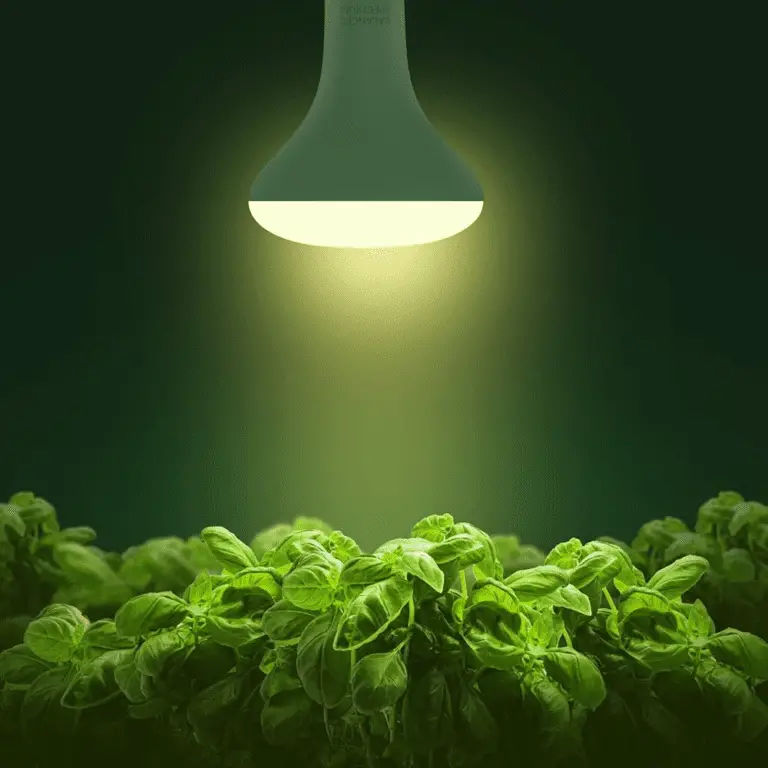5 Best pH Meters For Hydroponics and Aquaponics
Hydroponics and aquaponics have been gaining popularity among urban gardeners, enthusiasts, and even commercial farmers. These innovative methods of gardening allow for the cultivation of plants without the use of traditional soil. Instead, nutrient-rich water is used as the growing medium, resulting in faster growth and healthier plants. However, in order to maintain optimal conditions for growth, it is crucial to monitor the pH level of the water. And that’s where the best pH meter for hydroponics comes into play.
With the ability to accurately measure the acidity or alkalinity of the water, a pH meter is an essential tool for anyone involved in hydroponics or aquaponics. Whether you’re a new gardener looking to start a small hydroponic system at home or a seasoned professional managing a large-scale aquaponic farm, having a reliable pH meter can make all the difference in the success of your crops.
In this article, we will explore five of the best pH meters available in the market for hydroponics and aquaponics. These pH meters have been selected based on their accuracy, ease of use, durability, and overall customer satisfaction. Whether you’re looking for a compact handheld meter or a more advanced digital model, we’ve got you covered.
So, let’s dive in and discover the best pH meter for hydroponics that will help you achieve optimal pH levels and ensure the health and productivity of your plants.
Table of Contents
Why is pH important in hydroponics?
When it comes to hydroponics, pH is one of the most critical factors to consider. pH refers to the acidity or alkalinity of a solution, and it plays a crucial role in the nutrient uptake and overall health of the plants. Understanding and maintaining the optimal pH level is vital for successful hydroponic gardening.
One of the primary reasons why pH is important in hydroponics is because it affects nutrient availability. Different plants require specific pH levels to absorb essential nutrients effectively. If the pH is too high or too low, it can lead to nutrient deficiencies or toxicities, hindering plant growth and development. Monitoring the pH level ensures that plants are receiving the necessary nutrients in the right proportions to thrive.
To measure pH accurately in hydroponics, investing in the best pH meter for hydroponics is highly recommended. These meters are specifically designed to provide precise readings in hydroponic environments. The accuracy of the pH meter is crucial because even slight variations in pH can have a significant impact on plant health. With a reliable pH meter, hydroponic gardeners can regularly monitor the pH level of the nutrient solution and make necessary adjustments accordingly.
Maintaining the proper pH range in hydroponics also creates an ideal environment for beneficial microorganisms. These microorganisms play a crucial role in breaking down organic matter and converting it into nutrients that plants can absorb. Most of these microorganisms thrive in a slightly acidic pH range. By keeping the pH level within the optimal range, hydroponic gardeners can promote the growth of beneficial bacteria and fungi, which in turn enhances nutrient availability and plant health.
In conclusion, pH is a fundamental factor to consider in hydroponics. It directly impacts nutrient availability, plant health, and the overall success of a hydroponic garden. Investing in the best pH meter for hydroponics allows gardeners to accurately monitor and adjust the pH level, ensuring that plants receive the ideal nutrient balance for optimal growth. By maintaining the correct pH range, hydroponic gardeners can create a favorable environment for beneficial microorganisms, resulting in healthier and more productive plants.
What’s the best pH for hydroponics plants?
When it comes to hydroponics plants, ensuring the right pH level is crucial for optimal growth and productivity. The pH level refers to the acidity or alkalinity of the nutrient solution in which the plants are grown. Different plants have varying pH requirements, but the general consensus is that a pH range of 5.5 to 6.5 is ideal for most hydroponics crops.
Maintaining the proper pH level is essential because it affects the availability and absorption of essential nutrients by the plants’ roots. If the pH level is too high or too low, nutrient deficiencies may occur, stunting growth and leading to poor yield. This is why investing in a reliable pH meter for hydroponics is of utmost importance.
With numerous pH meters available in the market, it is crucial to choose the best pH meter for hydroponics. Look for a meter that provides accurate readings and is easy to calibrate. Also, ensure that the meter has a wide pH range and is well-suited for hydroponics applications. Some advanced models even come with built-in temperature compensation, making it easier to maintain the desired pH level.
Remember that the ideal pH range may vary slightly depending on the specific plant and growth stage. It’s wise to regularly monitor and adjust the pH level to ensure plants are thriving. With the right pH meter and proper attention to the plants’ changing needs, hydroponic growers can achieve optimal growth and abundant harvests.
Top Features to Look for in a Digital pH Meter
When it comes to choosing a digital pH meter for your hydroponic system, there are several key features that you should consider. These features will not only ensure accurate pH measurements but also enhance the overall usability and functionality of the meter in a hydroponic environment.
First and foremost, it is important to look for a pH meter with a suitable measurement range. Hydroponic systems typically require pH measurements ranging from 0 to 14, so it is essential to select a meter that can comfortably handle this range. Additionally, pH meters with a high resolution (preferably at least 0.01 pH) are ideal for obtaining precise readings in the hydroponic solution.
Another important feature to consider is the stability and response time of the pH meter. A stable meter will provide consistent readings over time, while a fast response time ensures quick and accurate measurements. This is particularly crucial in hydroponics, where pH fluctuations can have a significant impact on plant health and nutrient uptake.
Furthermore, investing in a pH meter with automatic temperature compensation (ATC) is highly advisable. Hydroponic solutions are often subject to temperature variations, and without ATC, these changes can affect pH readings. ATC capability enables the meter to adjust for temperature changes, ensuring accurate and reliable measurements regardless of temperature fluctuations.
Lastly, a pH meter with a durable and waterproof design is essential for hydroponic applications. This will ensure the longevity and resilience of the meter in the humid and sometimes harsh conditions found in hydroponic setups. Look for pH meters that have a sturdy construction and are resistant to water and moisture.
Considering these key features will help you choose the most suitable digital pH meter for your hydroponic system. In the next section, we will review a selection of top-rated pH meters that possess these essential features, providing you with a comprehensive understanding of their performance and suitability for hydroponics.
• pH meter with a suitable measurement range (0 to 14)
• High resolution (preferably at least 0.01 pH) for precise readings
• Stable meter for consistent readings over time
• Fast response time for quick and accurate measurements
• Automatic temperature compensation (ATC) to adjust for temperature changes
• Durable and waterproof design for longevity in hydroponic conditions
How often should you check the pH of your hydroponic solution?
Maintaining the optimal pH level is crucial for the success of any hydroponic system. pH is a measure of acidity or alkalinity, and it directly affects the availability of nutrients to plants. Therefore, regularly monitoring the pH of your hydroponic solution is essential to ensure optimal plant growth and maximum nutrient uptake.
So, how often should you check the pH of your hydroponic solution? While there’s no one-size-fits-all answer, experts recommend checking it at least once a day, preferably twice. The reason for this frequent monitoring is that pH can fluctuate rapidly in hydroponic systems due to factors like nutrient absorption, water temperature, and nutrient solution evaporation.
To accurately measure the pH of your hydroponic solution, investing in the best pH meter for hydroponics is highly recommended. These specialized meters offer precise readings and are specifically designed for hydroponic applications. They are easy to use, and some models even come with built-in temperature compensation, which ensures accurate pH readings at varying temperatures.
Regularly checking the pH of your hydroponic solution allows you to make timely adjustments. If the pH drifts too high or too low from the desired range, it can negatively affect nutrient availability, leading to nutrient deficiencies or toxicities. By detecting any pH fluctuations early, you can take corrective actions promptly to maintain a stable and optimal pH level, promoting healthy plant growth and higher yields.
In conclusion, the pH level of your hydroponic solution should be checked at least once a day, preferably twice, to ensure optimal plant growth and nutrient uptake. Using the best pH meter for hydroponics will help you accurately measure the pH level and make necessary adjustments as needed. Remember, a balanced pH is essential for your hydroponic system’s success, so don’t neglect this vital aspect of hydroponic gardening.
Can I use a soil pH meter for my hydroponic system?
Hydroponic systems have gained popularity among gardening enthusiasts due to their efficient use of water and space. One crucial aspect of maintaining a successful hydroponic setup is monitoring the pH level of the nutrient solution. Proper pH balance ensures that plants can effectively absorb nutrients for optimal growth. While there are several methods to measure pH, many wonder if a soil pH meter can be used for hydroponic systems.
In general, using a soil pH meter for a hydroponic system is not recommended. A soil pH meter is specifically designed to measure the pH of soil, which contains a different composition and nutrient availability than a hydroponic solution. Soil pH meters often provide inaccurate readings in hydroponic systems, which can lead to imbalanced nutrient solutions and hinder plant growth.
To accurately measure the pH in a hydroponic system, it is best to use a pH meter specifically designed for hydroponics. These meters are calibrated to measure the pH of water-based nutrient solutions accurately. They often come with additional features such as temperature compensation and automatic calibration, making them suitable for the precise needs of a hydroponic setup.
Investing in the best pH meter for hydroponics can save both time and money in the long run. Accurate pH measurements allow hydroponic gardeners to adjust nutrient solutions promptly, preventing potential issues such as nutrient deficiencies or toxicities. By using a reliable pH meter specifically designed for hydroponics, gardeners can optimize their plant’s growth and ensure a successful harvest.
What is the best type of pH probe for hydroponics?
When it comes to pH measurement in hydroponics, choosing the right pH probe is essential. pH probes, also known as pH meters or pH sensors, are the tools used to measure the acidity or alkalinity of the nutrient solution in hydroponic systems. As pH plays a critical role in plant nutrient uptake, having an accurate and reliable pH probe is crucial for plant health and growth.
There are different types of pH probes available in the market, each with its own advantages and limitations. The best pH meter for hydroponics depends on various factors such as accuracy, durability, ease of use, and price. One type of pH probe commonly used in hydroponics is a glass electrode pH probe. It offers high accuracy and precision, making it suitable for professional growers who require precise pH measurements. Glass electrodes are also resistant to chemical interference and can withstand harsh conditions.
Another popular option is the combination pH probe, which integrates both the pH electrode and the reference electrode into one unit. This type of probe is known for its ease of use and maintenance. The combination pH probe is often recommended for hobbyists and beginners in hydroponics due to its simplicity and affordability.
Ion-selective field-effect transistor (ISFET) pH probes are another type of pH probe used in hydroponics. ISFET probes are highly durable and resistant to physical damage, making them ideal for long-term use. However, they may require frequent calibration to maintain accuracy.
Ultimately, the best pH probe for hydroponics depends on your specific needs and budget. It is important to consider factors such as accuracy, durability, ease of use, and price before making a decision. Whichever type of pH probe you choose, regularly calibrating and maintaining it will ensure accurate pH measurements and optimal plant health in your hydroponic system.
Why are replacement probes so expensive?
One of the key components of maintaining a successful hydroponic garden is monitoring the pH levels of the nutrient solution. pH meters are essential tools for every hydroponic enthusiast. However, when it comes to replacing a probe for your pH meter, you might be surprised by the hefty price tag attached. So, why are replacement probes so expensive?
First and foremost, it’s important to note that not all replacement probes are created equal. When searching for the best pH meter for hydroponics, you’ll likely come across a wide range of options, each varying in quality and durability. Replacement probes that are designed to withstand the harsh environments of hydroponics systems are often built with high-quality materials and advanced technologies, ensuring accurate and reliable readings.
Moreover, the process of manufacturing replacement probes involves sophisticated engineering and precise calibration. Manufacturers invest a significant amount of time, effort, and resources into perfecting the design and functionality of these probes. This meticulous attention to detail allows for accurate and consistent pH measurements, which are crucial for the health and productivity of your hydroponic crops.
Lastly, the relatively small market size for hydroponic supplies plays a role in the pricing of replacement probes. Compared to traditional gardening methods, hydroponics is still a niche industry. As a result, the demand for specialized hydroponic equipment is lower, which can drive up the cost of production. Additionally, the smaller customer base means that manufacturers have higher production costs per unit, further contributing to the overall price.
While the cost of replacement probes for pH meters may seem burdensome, it’s important to remember that these probes are an integral part of maintaining a successful hydroponic garden. Investing in a high-quality and accurate probe is essential for achieving optimal growth and yield. Careful consideration of the quality, durability, and performance of replacement probes can help you make a wise investment in the longevity and productivity of your hydroponics system.
Does temperature affect pH measurements?
When it comes to pH measurements, temperature plays a crucial role. pH is a measure of the acidity or alkalinity of a substance, and it is affected by various factors, including temperature. The pH scale ranges from 0 to 14, with a pH of 7 considered neutral, below 7 being acidic, and above 7 being alkaline.
Temperature can impact pH measurements in two main ways. Firstly, the temperature of the solution being measured can directly affect the pH reading. Different substances can undergo temperature-dependent chemical reactions that alter their acidity or alkalinity. So, it’s essential to take temperature into account when analyzing pH values.
Secondly, the temperature of the environment can influence the accuracy of the pH meter itself. pH meters are sophisticated instruments that rely on electrodes to measure pH levels. These electrodes are calibrated at a specific temperature, and any deviation from that temperature can introduce errors in the measurements. Therefore, it’s crucial to ensure that the pH meter is operated at the correct temperature for accurate readings.
When it comes to hydroponics, where pH balance is vital for plant growth, having an accurate pH meter becomes crucial. The best pH meter for hydroponics is one that not only provides accurate readings but also compensates for temperature variations. Look for a pH meter that has built-in temperature compensation, which adjusts the reading based on the temperature of the solution being measured. This feature ensures that you get reliable and precise pH measurements, even in changing temperature conditions.
In conclusion, temperature does affect pH measurements. Both the temperature of the solution being measured and the temperature of the environment can impact the accuracy of pH readings. To obtain accurate results, it is important to consider temperature and use a pH meter that provides temperature compensation, especially in hydroponics, where maintaining the correct pH balance is crucial for plant growth.
How do I properly store and care for my pH meter and probe?
Maintaining the accuracy and longevity of your pH meter and probe is crucial for obtaining reliable readings in your hydroponic system. Proper storage and care practices are key to ensuring the device remains in optimal condition, delivering accurate measurements over time. Here’s a simple guide to help you correctly store and care for your pH meter and probe.
First and foremost, it’s important to remember that the pH probe is a delicate instrument and should be handled with care. When using the meter, avoid dropping or knocking the probe against hard surfaces, as this can damage it. Always rinse the probe with distilled water after each use to remove any residue or substances that may affect its performance.
Once you’ve finished measuring the pH, dry the probe gently with a clean, soft cloth. Avoid using abrasive materials like paper towels that could scratch or damage the sensitive glass membrane. Additionally, do not wipe the probe against anything that could contaminate it, such as a dirty surface or towel.
When it comes to storage, utilize the protective cap or storage solution provided by the manufacturer. The cap or solution ensures the probe stays moist and prevents it from drying out, which can significantly affect accuracy. If you’re using a cap, make sure it is securely placed on the probe, while storage solutions should be used according to the manufacturer’s instructions.
Lastly, store your pH meter and probe in a cool and dry place, away from extreme temperatures and direct sunlight. Avoid exposing them to excessive heat or cold, as this can damage the sensitive components. When not in use, it’s best to keep the whole device safely stored in its designated case or box, providing additional protection.
Investing in a high-quality pH meter designed specifically for hydroponics, like the best pH meter for hydroponics in the market, is also crucial. Choosing a reliable brand ensures better accuracy and durability, maximizing the lifespan of your pH meter and probe.
By following these simple storage and care guidelines, you can extend the life of your pH meter and probe, ensuring accurate and consistent readings for your hydroponic system. Proper maintenance is key to obtaining optimal results in your cultivation endeavors, and your pH meter is an essential tool to help you achieve that success.
How can I calibrate my pH meter?
When it comes to the maintenance of a hydroponic system, monitoring the pH level of the nutrient solution is crucial. A pH meter is considered the best tool to accurately measure and adjust the pH in hydroponics. However, to ensure the accuracy of the readings, it is equally important to calibrate your pH meter regularly.
Calibrating a pH meter involves comparing its readings with those of a known pH solution, usually pH 7 and pH 4 buffers. The process may slightly differ depending on the brand and model of your pH meter, so it’s crucial to read the manufacturer’s instructions carefully. In general, the calibration process involves rinsing the electrode with distilled water, immersing it into the pH 7 buffer, adjusting the meter to read pH 7, and then repeating the process with the pH 4 buffer.
To calibrate your pH meter precisely, maintaining the temperature of your calibration solutions is crucial. Make sure the solutions and the meter are at the same temperature to obtain accurate readings. Additionally, it is recommended to calibrate your pH meter before each use and after a long period of storage or if there is any doubt regarding its accuracy.
In conclusion, calibrating your pH meter regularly is vital to ensure accurate readings and proper adjustments in your hydroponic system. By following the manufacturer’s instructions and taking care to match the temperature of the calibration solutions and the meter, you can maintain the best pH meter for hydroponics and optimize the health and productivity of your plants.
Calibration and Accuracy of pH meters
Regular calibration and accuracy are of utmost importance when it comes to pH measurements in hydroponics. Calibration ensures that the pH meter is correctly calibrated to provide accurate readings. Over time, pH meters can drift and lose their accuracy, making regular calibration crucial in maintaining precision.
Accurate pH measurements are vital for the success of hydroponic systems. The pH level directly affects nutrient availability to plants, as different nutrients are absorbed optimally within specific pH ranges. This means that if the pH is not accurately measured, plants may not receive the nutrients they need, leading to nutrient deficiencies or toxicities. Therefore, accuracy in pH measurements is crucial to provide the optimal pH levels for the plants’ growth and overall health.
• Regular calibration ensures accurate readings from pH meters
• pH meters can drift and lose accuracy over time
• Calibration is crucial in maintaining precision in hydroponics systems
• Accurate pH measurements are vital for the success of hydroponic systems
• The pH level directly affects nutrient availability to plants
• Different nutrients are absorbed optimally within specific pH ranges
• Inaccurate measurements may lead to nutrient deficiencies or toxicities
Overall, regular calibration and accuracy play a significant role in ensuring the optimal growth and health of plants in hydroponic systems. By calibrating pH meters regularly, growers can maintain precision and obtain accurate readings. This allows them to adjust the nutrient solution accordingly, providing plants with the ideal pH levels for proper nutrient absorption. With accurate measurements, growers can prevent nutrient imbalances that could negatively impact plant health and overall productivity. Therefore, prioritizing regular calibration and accuracy is essential for successful hydroponic cultivation.
5 Best Ph meters for hydroponics and water
1) Apera Instruments AI311 Premium Series
The Apera Instruments AI311 Premium Series PH60 Waterproof pH Pocket Tester Kit is a reliable and accurate tool for testing pH levels. With its replaceable probe and ±0.01 pH accuracy, it ensures precise measurements every time. The kit also includes an LCD display, making it easy to read and understand the results. Whether you are a professional or a hobbyist, this pH meter is a must-have in your arsenal. Trust the Apera Instruments brand and make your pH testing experience seamless with the AI311 Premium Series PH60 Waterproof pH Pocket Tester Kit.
- Replaceable probe
- Improved calibration efficiency
- Great at cleaning up solutions, including acids and bases
- Requires regular recalibration
2. AC Infinity Hydroponic Meter PRO
The AC Infinity Hydroponic Meter PRO Kit is a game-changer for those who are serious about maintaining optimal pH levels in their hydroponic gardens, aquariums, and pools. With its high precision digital pH pen and interchangeable probe, this all-in-one meter makes it incredibly easy to measure pH, temperature, salinity, and EC TDS levels accurately. The ±0.01 pH accuracy ensures that you always get precise readings, allowing you to make the necessary adjustments for optimal plant growth and water quality. The sleek, ergonomic design of the pH pen makes it comfortable to hold and use, while the durable construction ensures long-lasting performance. Whether you’re a beginner or an experienced hydroponic gardener, this AC Infinity Hydroponic Meter PRO Kit is definitely a worthwhile investment.
- Rugged and dustproof, so it can handle tough environments
- Replaceable pH probe
- Includes lab-grade calibration solutions
- Options for more accurate or more affordable probes
- Small screen
- Slightly Complicated setup
3. Bluelab Water Monitor Wi-Fi
The Bluelab Guardian Monitor Wi-Fi is a valuable tool for anyone involved in hydroponics or indoor plant growing. With its 3-in-1 measurement capabilities, this digital nutrient meter provides real-time monitoring of pH, temperature, and conductivity (TDS) levels in water. This makes it incredibly convenient for maintaining the optimal conditions for plant growth.
The Wi-Fi feature allows users to access the measurements remotely, giving them the flexibility to monitor their plants from anywhere. Another standout feature is the calibration function, which ensures accurate readings. The device’s user-friendly interface and clear display make it easy to navigate and understand the measurements.
Overall, the Bluelab Guardian Monitor Wi-Fi is a reliable and efficient tool that will greatly assist in the success of any hydroponic or indoor plant growing endeavor. Its ability to track important parameters and provide accurate readings sets it apart from other similar products on the market.
- Calibration for life
- Syncs with Edenic and Wi-Fi so you can monitor from your phone
- No manual calibration required
- Wi-Fi connectivity for remote monitoring and control
- Requires power outlet
- Requires Wi-Fi to use all features
4. bluelab pH Pen
The bluelab pH Pen-Digital pH Tester is a reliable and accurate tool for measuring pH and temperature in solutions and soil solutions. Designed to optimize plant health and performance, this hand-held meter ensures high yield crops. The white color of the tester gives it a clean and professional look. Created by bluelab, a trusted brand in the market, this pH pen is a must-have for anyone involved in horticulture or agriculture. Its easy-to-use design and precise readings make it a valuable tool for growers of all levels of experience. Whether you’re a professional farmer or a hobbyist gardener, the bluelab pH Pen-Digital pH Tester is an essential device for maintaining the optimal pH levels in your crops and maximizing their growth potential. Pros
- Good up and down adjustment capabilities
- Economical, if you don’t need accuracy
- Waterproof
- Wi-Fi connectivity for remote monitoring and control
- Replaceable probe
- Difficult to calibrate
- Requires consistent re-calibration
5. GroLine Hydroponic Waterproof pH Tester
The HI98131 GroLine Hydroponic Waterproof Pocket pH/EC/TDS/Temperature Tester by Nessagro Store is an essential tool for anyone involved in hydroponic gardening. This pH meter is designed to withstand the harsh conditions of hydroponic environments, making it a reliable and durable option.
The HI98131 features a waterproof design, allowing users to confidently test the pH, EC, TDS, and temperature of their hydroponic solution without worrying about damaging the device. Its compact size makes it convenient to carry around, ensuring quick and accurate readings wherever you go.
The accuracy and reliability of the HI98131 are praised by users, who find its measurements consistent and easy to read. Additionally, the simple interface and user-friendly design make it accessible to both beginners and experienced growers.
Overall, the HI98131 GroLine Hydroponic Waterproof Pocket pH/EC/TDS/Temperature Tester is a highly recommended product for anyone seeking a reliable and durable pH meter for hydroponic gardening.
- Dedicated for hydroponics, aquaponics, and fertigation systems
- Waterproof
- EC and TDS measurements
- Not great for soil
- Short probe
FAQS
How often should a digital pH meter be calibrated?
It is recommended to calibrate a digital pH meter before each use or at least once a week for optimal accuracy.
Can a digital pH meter be used for purposes other than hydroponics?
Yes, digital pH meters can be used for various applications such as aquariums, swimming pools, and soil testing.
How long does it take to obtain a pH reading with a digital pH meter?
The time it takes to obtain a pH reading can vary depending on the model and manufacturer. However, most digital pH meters provide instant readings within seconds.
Is it necessary to store a digital pH meter in a specific manner?
Yes, it is important to store a digital pH meter properly to ensure its longevity. It is recommended to store the pH meter in a clean, dry place and to remove the batteries when not in use for an extended period.
Can a digital pH meter measure pH levels below 0 or above 14?
Most digital pH meters have a range of 0-14, which covers the pH scale commonly encountered in hydroponics and other applications. However, for extreme pH values, specialized meters may be required.
What is the expected lifespan of a digital pH meter?
The lifespan of a digital pH meter can vary depending on its quality, frequency of use, and maintenance. On average, a well-maintained digital pH meter can last for several years.
Is it possible to replace the electrode of a digital pH meter?
Yes, the electrodes of digital pH meters can typically be replaced. However, it is important to check with the manufacturer or refer to the user manual for specific instructions on electrode replacement.
Can a digital pH meter be submerged in water?
Most digital pH meters are designed to withstand limited water exposure but should not be fully submerged. It is important to refer to the manufacturer’s instructions for the specific model being used.
Do digital pH meters require any additional accessories for operation?
In most cases, digital pH meters come with all the necessary accessories for operation, including calibration solutions and storage solutions. However, it is advisable to check the product specifications or consult with the manufacturer to ensure you have everything needed for accurate pH measurements.
Are there any maintenance tips for ensuring the longevity of a digital pH meter?
Regularly cleaning the electrode, storing the pH meter properly, and calibrating it regularly are essential maintenance practices to prolong the lifespan of a digital pH meter. Additionally, following the manufacturer’s guidelines and avoiding exposure to extreme temperatures can also help maintain its accuracy and functionality.

